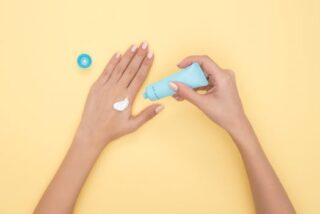
More Beauty Skin Care & Gorgeous Smiles Articles
Protecting Your Skin: Effective Sunscreens to Prevent Sun Poisoning and Sun Sickness Without Sunburn

When it comes to protecting your skin from the dangers of sun exposure, understanding the role of sunscreen for sun poisoning is pivotal. Sun poisoning is a severe reaction to overexposure to ultraviolet (UV) rays, and choosing the right sunscreen can help prevent not just sunburn, but also mitigate the risk of sun sickness without sunburn symptoms. Let’s explore how to effectively protect your skin and maintain its health in the sun.
The Importance of Sunscreen for Sun Poisoning
Sun poisoning isn’t just an extreme sunburn; it can include symptoms such as nausea, fever, and dizziness, which classify it as sun sickness. With the right sunscreen, these conditions can often be avoided. Selecting a broad-spectrum sunscreen with an SPF of at least 30 is crucial. These sunscreens protect against both UVA rays, which can age the skin, and UVB rays, which burn the skin and can lead to sunburn or more severe sun poisoning.
What to Look For in a Sunscreen
When choosing a sunscreen, consider its ingredients and application. Mineral-based sunscreens, often containing zinc oxide or titanium dioxide, are recommended for their protective barrier against UV rays. For those who spend extended periods in the sun, water-resistant options are ideal. Regular reapplication, every two hours and after swimming or sweating, ensures continued protection.
Preventing Sun Sickness Without Sunburn
It’s a misconception that sunburn is the only sign of sun damage. Sun sickness can occur even without the telltale burn. Symptoms such as headaches, dehydration, and heat rash are often overlooked but can be just as harmful. Adequate hydration, shade breaks, and appropriate clothing, in addition to sunscreen, can significantly reduce these risks.
Additional Protective Measures
Beyond sunscreen, wearing hats, sunglasses, and lightweight clothing can shield your skin. Wide-brimmed hats and UV-protected sunglasses can prevent UV rays from directly hitting the more sensitive areas such as the face and eyes. Wearing UV-protective clothing, particularly during peak sun hours, is another effective strategy.
Remember, proactive sun safety measures help in preventing not only immediate discomfort but also long-term skin damage. Engaging in a consistent skincare routine supplemented with intelligent supplement choices can contribute to overall skin health.
Common Myths About Sun Protection
- Myth: A base tan protects against sunburn.
- Truth: A tan is an indicator of skin damage and does not offer true protection.
- Myth: Sunscreen is unnecessary on cloudy days.
- Truth: UV rays penetrate clouds and can still cause skin damage.
- Myth: Darker skin tones don’t need sunscreen.
- Truth: All skin tones are susceptible to UV damage and should use protective measures.
Conclusion: Prioritizing Your Skin’s Safety
By incorporating sunscreen for sun poisoning into your daily routine, you’re not only shielding yourself from the more visible effects of sun exposure but also preventing potential health issues like sun sickness without sunburn. Awareness and proactive care are key to maintaining skin health. Keep informed about skin protection strategies and consult with skincare professionals for personalized advice. To further explore in-depth information, you might find helpful resources such as this article on health.
- Sun poisoning can occur with or without sunburn.
- Use broad-spectrum SPF 30 or higher sunscreen.
- Reapply sunscreen every two hours.
- Supplements and lifestyle choices also contribute to skin health.
- Sun protection is essential for all skin tones.
FAQ
What is sun poisoning?
Sun poisoning is a severe skin reaction to intense UV exposure, often manifesting as a rash, nausea, and dizziness, in addition to sunburn.
Does sunscreen prevent all forms of sun-related sickness?
Sunscreen significantly reduces the risk of skin cancer and sunburn, and with proper use, it can also help prevent sun-related sickness symptoms by protecting the skin from UV damage.
Can sun poisoning occur without visible sunburn?
Yes, sun poisoning can happen even if sunburn is not immediately evident, with symptoms such as dizziness and nausea occurring first.
Are there any natural remedies to help combat sun sickness?
Natural remedies such as aloe vera and coconut oil may soothe mild symptoms of sun damage, while antioxidants like vitamin C help combat free radicals. Nevertheless, prevention with sunscreen remains critical.
How should I treat sun poisoning?
Immediate treatment includes getting out of the sun, hydrating, and applying cool compresses. Severe symptoms should prompt consultation with a healthcare professional.
Other Articles You May Find of Interest...
- Sofwave Pure Impact: A Noninvasive Way to Firm Skin and Smooth Wrinkles
- How Modern Aesthetic Treatments Support Confidence and Emotional Wellbeing
- How Dewitt Pharma is Transforming Texas Medspas with Trusted Injector Resources
- The Art of Timeless Beauty: Modern Facial Rejuvenation Techniques
- 5 Ways Exosomes Are Changing Skin and Wellness Treatments in 2026
- 5 Popular Cosmetic Treatments That Require Little to No Downtime
- Effective Solutions for Treating Fungal Infections on the Face














